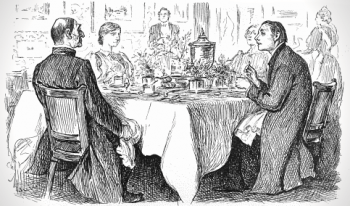Things are changing in veterinary medicine, and quickly. Close your eyes for a few minutes, or – more accurately – take a few months off from general practice, and you can feel rather lost when you’re greeted by all the new products on the shelves.
Except most of them aren’t new at all, they’re the same old products repacked and renamed to fit in with whichever corporate group is now in charge.
Hitherto, I’ve been silent about the rapid revolution quietly transforming veterinary practice in the UK, largely because the wheel is still in spin and it’s hard to say what the overall effect will have been.
The big question

To me, as ever, the most important question is whether the corporatisation of vets will provide a better or worse service for pets and clients – or, to boil it down to the question always central for me: will it be better or worse at helping to relieve suffering?
The very short answer to that question is: I don’t know.
Like all of us, I hear vague horror stories, usually about “other” corporates than the one that owns the practice I’m working in, but I’ve seen my fair share of unprofessional and unethical work in non-corporate practice in my time, so I am not sure there is an obvious or simple answer, other than to say it appears rather like a curate’s egg (by which I mean good in places and bad in others, rather than, say, Raymond Chandler’s egg, which is, of course, hard boiled and slightly gritty).
However, there’s an area of corporate practice that I’d like to talk about specifically in this blog, though: bonuses.
Earnings related
I was never a very good earner for the practice. When I topped earnings lists, which wasn’t often, it was because of throughput, not individual bills. I was always quick and I had a knack of making decisions quickly and getting through consults without making owners feel rushed, but I always struggled with charging appropriately for my time.
Fortunately for me, I spent much of my career without earnings-related bonuses, but I think that kind of job is rapidly heading the way of the dodo. Most people I know in general practice are on bonus schemes related to how much they earn for the practice.
So, good or bad? Well, I’m sure it’s great for business, otherwise they wouldn’t do it, and I can understand the good very easily.
Motivation
I mentioned I always struggled to charge appropriately for my time, and that’s a bad thing. I was highly trained and was investing time, skills and, in many cases, a great deal of emotional energy into these cases I saw, and letting people off the odd few quid because it didn’t feel right to charge them meant other people would have to pay more to make up the difference.
I don’t know if a bonus would have mattered desperately to me, but knowing my earnings were being closely scrutinised would, I think, have motivated me to charge more, and more often than I did. As well as this, the prospect of better pay for vets and nurses, however it is achieved, has got to be a good thing, given they are underpaid compared to most professions (reputations about vets having a license to print money to the contrary).
That’s the good I can see, although I will point out neither of those have much to do with my eternal “relieving suffering” question, and I have some issues about how well bonuses work out for nurses, it being much harder to work out how much they have contributed to the practice earnings.
What about the bad?
Cherry picking

My main concern about bonuses is the development of a “bonus culture”, which is something I have noticed in many practices with these sort of schemes.
Whether it’s deliberate, or even conscious, I’m not sure, but it leads to a certain mentality throughout the vets (or at least some of the vets) working in these environments. Higher-paying procedures tend to be prioritised, cherry-picked or quietly fought over, while the lower-paid stuff is left.
Telephone messages won’t get you any earnings, but getting your name behind three-months worth of heart medications can be pretty lucrative, an x-ray series is going to net significantly more than a home visit for a vaccination, and selling the flea treatment and worming in your consult room is better than letting the client buy it out on reception.
As I said previously, I think most of this is not deliberate and I am not suggesting animal welfare is compromised because of this – I don’t recall ever seeing that happen – but it leads to a certain mentality that I, at least, am not comfortable with.
Unhealthy competition?
Bonus culture leads to a certain level of competition among vets, and while I’m told competition can be “healthy”, my general experience of it in other walks of life is that it leads to worse service with ever-increasing prices (although that’s probably just my political leanings poking their way to the fore, despite me trying to squish them).
Is bonus culture “wrong”? I’m not sure, but it feels at least inappropriate for a medical profession. I think much of my problem is I like to think of medicine as fundamentally altruistic and caring, when veterinary medicine is and always has been a business, and the bottom line is it’s all about the bottom line – corporate practices are more honest and up front about this than practices have been in the past.
However I feel about the culture (and I’m prepared to admit there’s a lot of personal bias and, probably, naivety, in my opinion of it), the net effect of it is to drive up prices, which is surely the point of the bonuses in the first place, and that’s where I start to worry. Vets, even though they personally don’t have the salaries to match, are not cheap, and are definitely not getting cheaper, and that leads me back to my original question – will it be better or worse at relieving suffering?
At a cost
I genuinely don’t think welfare or professionalism has been compromised by corporates. In fact I think it’s likely people taking their pets to be treated will get as good if not better service than before, but it will come at a cost – literally.
As fees rise, fewer people will take their pets to vets. I worry about two tiers of pets – those that see the vet and those that don’t. I know this already happens, but with corporatisation, the number of animals that never see a vet is going to get bigger. That means more pressure on charities, more animals being rehomed and, ultimately, more suffering.
Hopefully, I’m wrong. This is an area I have less experience than most of my blog topics and I’m worried my own philosophy may be clouding my view.
I’d appreciate other opinions: what do you think?

Leave a Reply